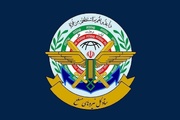Mohammad Mazhari and Somayeh Khomarbaghi of Mehr News International Service Syrian Ambassador to Iran Adnan Mahmoud asked in an exclusive interview about the success of Syrian army in the fronts against terrorism, Vienna talks, Syrian refugees, Turkey and Saudi Arabian positions on Syrian crisis, the snap elections, and Damascus-Cairo relations:
It seems that Russia and Syria have their own different definitions of terrorism as Russia has actively engaged in talks with for example Al-Nusra Front, while Syrian army actively fights the group as allies to ISIL. Is there an agreement, tacit or whatsoever, between Damascus and Moscow on this?
We believe that terrorism is terrorism, and according to international law, terrorist is who kills and destroys; so, Syrian Takfirists under any name, have committed atrocities in different parts of Syria in unprecedented dimensions beyond the imagination taking victims of all walks of life. So, all warring factions fall into the category of terrorism. Opposition, on the other hand, is distinct group with political ideology of their own and who do not use arms against the establishment and their own fellow citizens. Any group targeting Syrian army and government is aptly considered terrorist. There is no ‘moderate terrorist’ or ‘violent terrorist’ in the annals of international relations.
Terrorism is not limited to using weapons; rather, it has an intellectual dimension; in this, Takfirism which prescribes destruction of any sort and Wahhabism and Al-Qaeda are the same, since both are nourished from the same source of evil thinking and hatemongering. Currently, Iran, Russia, Iraq, and all countries with a serious resolution to fight terrorism stand with Syria. We are in general consensus and common grounds on fighting terrorism which was fostered by the US and its allies in the region, who supported them by logistical aid and arms and finance.
How would you think of Kurdish groups fighting ISIL? Would they be categorized as a group inside the wider spectrum of resistance?
All Syrian ethnicities do not want to be considered separate from the motherland; Syrian constitution does not recognize multiple Syrian citizen types, and all forces fighting terrorists do such, without any exception, to serve Syrian national interests, all are considered as Syrians and supported by Syrian army.
Turkey and the US have been long negotiating on creation of a buffer zone in northern borders of Syria. Could this buffer zone serve Turkish interests as a no-fly zone?
Turkey has been a logistical base for terrorists since the wake of conflict in Syria, providing them with Saudi and Qatari resources and arms. There has been no serious commitment and action by the US or Turkey to fight terrorists. Any power which entertain fighting terrorism should coordinate actions with Syrian government and army; however, the strong 60-country alliance led by the US failed to score a single success in Syria by airstrikes against ISIL; rather, it spread terrorist forth to other countries, especially western countries, which once had invested heavily in terrorists in Syria.
Has Syrian government had taken national and international measures to return Syrian refugees back to country?
All refugees come from regions destroyed by terrorist atrocities, and terrorism is the major cause of refugee crisis; Syrian government had mobilized all capacities to bring Syrian refugees in the neighboring countries back to country where government force control the regions, and they will live beside their Syrian brothers as equal citizens. Syrian government currently provides aid to all citizens fleeing atrocities of terrorists and settling on government-controlled regions. They would not come to secure regions if they had any fear from government crackdown. Syrians migrating to Turkey constitute 20 per cent of the whole refugees, and Turkey had contrived a plot so that Syrians migrate to Europe through land. They have been escaping the terrorism and economic plights of the war.
How would you evaluate the situation on the grounds in Aleppo?
Currently, Syrian army have the initiative on the ground along with support coming from National Defense Forces, Iranian military advisers, and Palestinian resistance groups in unremittent fight against terrorism; it had scored some success in Aleppo’s southern and eastern outskirts, Homs, Hama, and suburbs of Damascus. These achievements have been strategic in nature and have pushed back Takfirist terrorists in all fronts across the country. The success comes in a situation where terrorists enjoy the most advanced artillery which receive from their supportive countries, which in turn, called terrorist groups including ISIL, Al-Nusra Front, Ahrar al-Sham, Jaish al-Fath, and Jaish al-Islam to unite against Syrian army as a single enemy.
Back to Vienna talks, Iran was invited for the first time. What are causes behind the invitation, and what did the talks seek to achieve regarding Syrian situation?
No country in the world could ignore the role of Iran played in the region on fighting terrorism and solving regional issues. Iran’s role is based on an accurate evaluation of the crises and on international principles, and the UN Charter. The west committed a strategic error of judgement when the US and its allies in the region supported terrorism, pouring forth arms and money to Syria; however, Iran’s path is righteous on the contrary.
How would you assess the future of Vienna in hitting a solution to Syrian crisis now with Iran participating in the talks with a recognized status?
It is beyond any doubt that Iran’s participation in Vienna talks contributed crucially to decisions made in the session along with positive roles Iraq, Russia, Oman, and Lebanon played; their contribution was critical in reaffirming that no power could decide on behalf of Syrian people about the future of country. However, UN resolutions, especially on terrorism, should be emphasized upon, and pressures should be mount on Turkey, Saudi Arabia, and Qatar to cut their support for terrorism as a prologue to any solution to Syrian crisis.
End of Part One
Read the original version of this interview in Arabic here.

























Your Comment